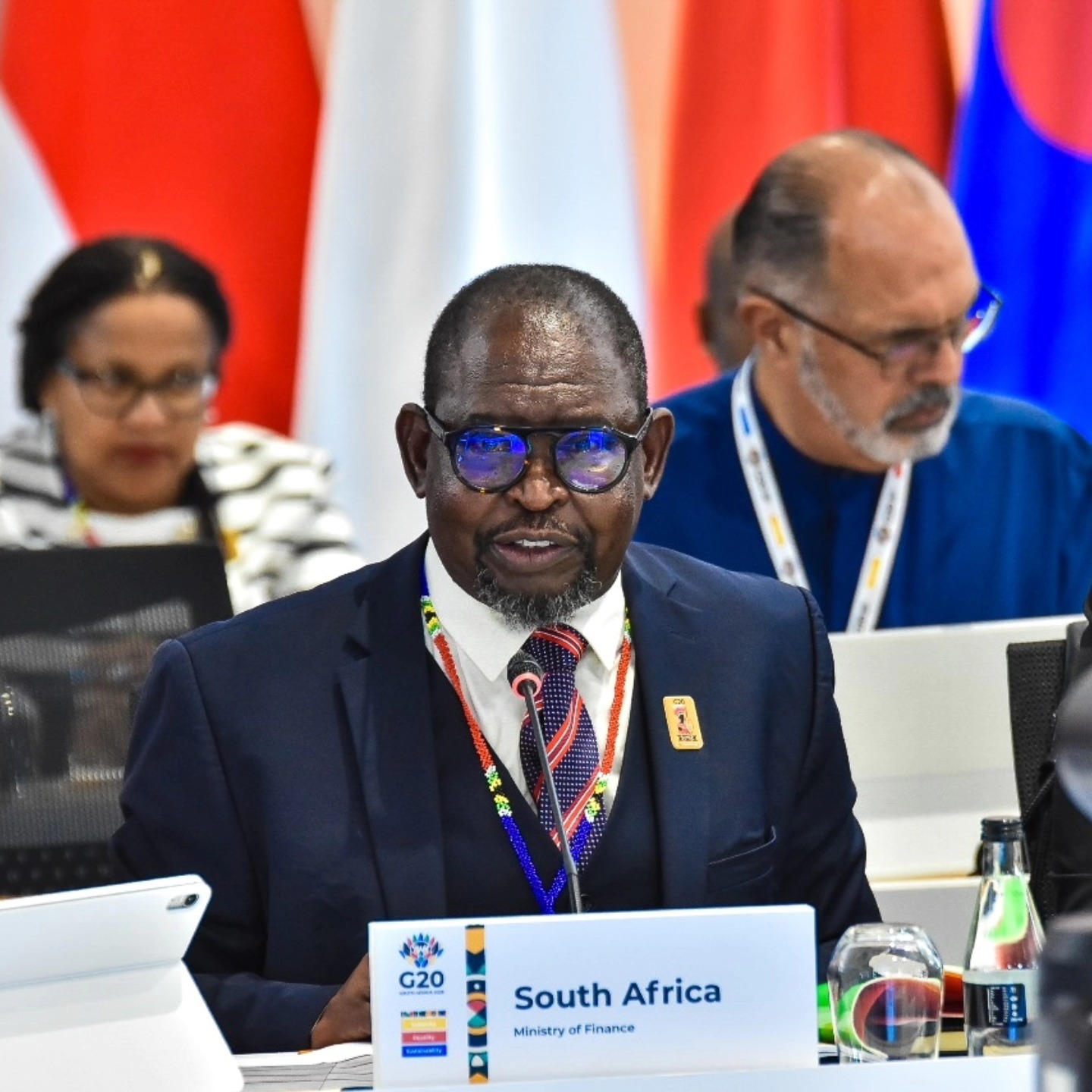Godongwana Urges G20 to Lead Bold Global Action Amid Economic and Climate Crises
Delivering the opening remarks at the 3rd G20 Finance Ministers and Central Bank Governors Meeting, held in KwaZulu-Natal, Godongwana called for unity, decisive policymaking, and a commitment to inclusive multilateralism.

- Country:
- South Africa
As the world grapples with a turbulent economic landscape, climate shocks, and widening inequality, South Africa’s Finance Minister Enoch Godongwana has urged G20 nations to step up as a source of strategic global leadership and coordinated action. Delivering the opening remarks at the 3rd G20 Finance Ministers and Central Bank Governors Meeting, held in KwaZulu-Natal, Godongwana called for unity, decisive policymaking, and a commitment to inclusive multilateralism.
“We meet at a time of fragile global economic growth,” Godongwana said. “While inflation is gradually moderating and financial conditions are stabilising in some regions, rising trade barriers, persistent global imbalances, and new geopolitical tensions continue to cast a shadow over recovery efforts.”
A Fragile Recovery Undermined by Complex Global Challenges
Minister Godongwana’s address painted a sobering picture of the global economy, which, despite signs of resilience, remains vulnerable to:
-
Geopolitical tensions, including ongoing conflicts and trade fragmentation
-
Debt distress, particularly in low-income countries
-
Escalating climate-related shocks, affecting both food security and infrastructure
-
Rapid technological disruption, especially in AI and digital finance
-
Staggering development finance gaps, which threaten progress on the Sustainable Development Goals (SDGs)
“The cumulative impact of these cascading challenges is pushing the achievement of the SDGs 2030 further out of reach,” he said.
He emphasized that while technological shifts like AI offer immense potential for growth, they also pose risks of labour displacement, data inequalities, and governance voids. These can only be managed through proactive, coordinated global governance.
Africa and the Global South: Facing Steeper Development Barriers
Godongwana gave special attention to the developmental challenges facing Africa, highlighting the “staggering $4 trillion annual financing gap” that many developing nations face in meeting sustainable development targets.
“Many developing countries remain burdened by high and rising debt, limited fiscal space, and the high cost of capital. These constraints severely limit their ability to invest in critical infrastructure, health, education, and climate resilience,” he said.
He warned that unless action is taken, the divide between developed and developing economies will continue to widen, undermining global stability and cooperation.
Financing for Development: Echoes from Spain
Referring to the outcomes of the 4th International Conference on Financing for Development, recently held in Spain, Godongwana said the global community had sent a clear and urgent message.
“We must act decisively. Choose cooperation over fragmentation, unity over division, and action over inaction before the window to deliver on our shared commitments closes.”
He urged G20 delegates to take this message seriously as they move forward with budget decisions, financial policy reforms, and support mechanisms for low-income countries.
A Call for Bold, Cooperative Leadership
As South Africa assumes the G20 Presidency from December 2024 to November 2025, under the theme “Solidarity, Equality, and Sustainability,” the country aims to shape the G20 into a more inclusive and responsive forum.
Godongwana stressed that reinvigorated multilateralism — based on inclusive dialogue and rules-based cooperation — is essential to tackling challenges no single country can resolve on its own, including:
-
Climate change
-
Debt relief and restructuring
-
Global financial architecture reform
-
Access to affordable capital for the Global South
“The G20 must extend its efforts to reach its true potential as a collective,” he said. “We have a critical role to play in revitalising and strengthening multilateralism.”
The G20’s Mandate in a Multipolar World
Godongwana positioned the G20 not just as a forum of the world’s largest economies, but as a platform with the potential to redefine development cooperation in a multipolar world. He warned against the dangers of nationalism and protectionism, urging instead for bold leadership and mutual accountability.
He concluded his remarks with a call for urgency and open-mindedness:
“The need for bold, cooperative leadership has never been greater. Let us approach our discussions with open minds, collective purpose, and a determination to deliver progress.”
As the G20 meets amid rising global volatility, the challenge is clear: to bridge divides, support developing economies, and implement reforms that serve not just a few nations, but the global commons. South Africa’s leadership seeks to place inclusive development, sustainable finance, and equitable global governance at the heart of the G20 agenda in the year ahead.










